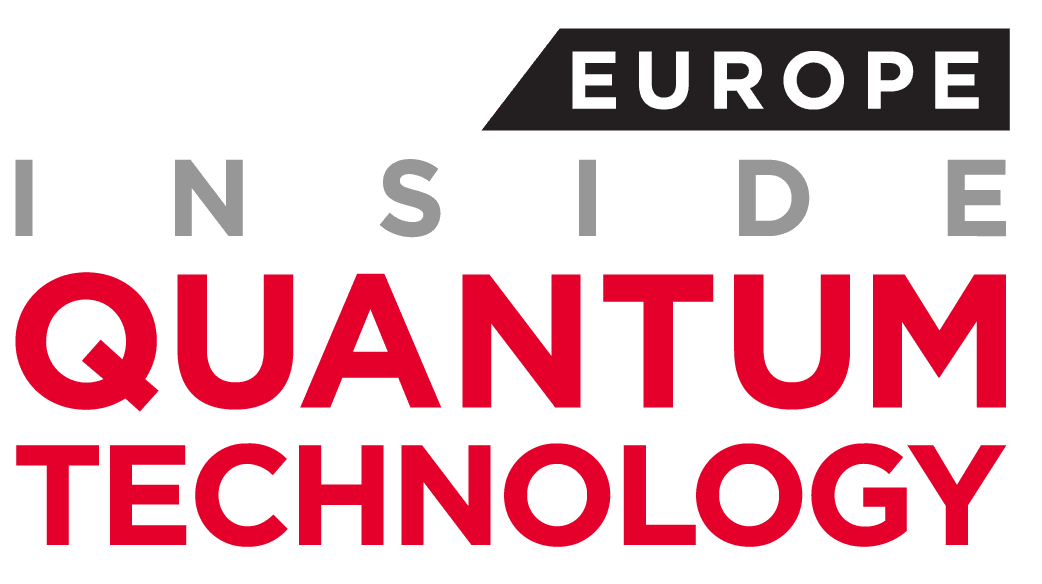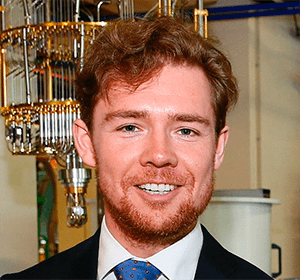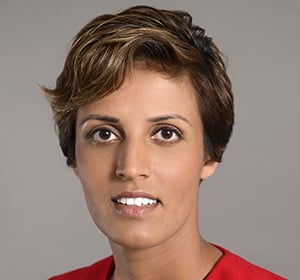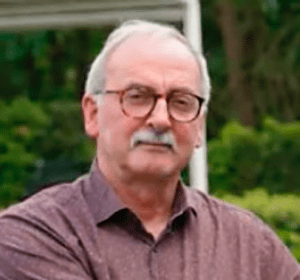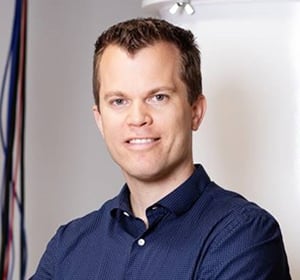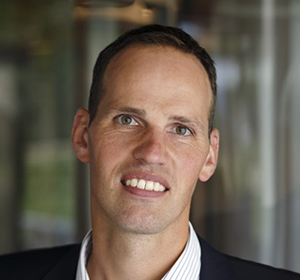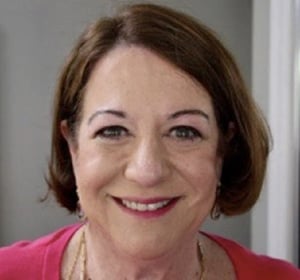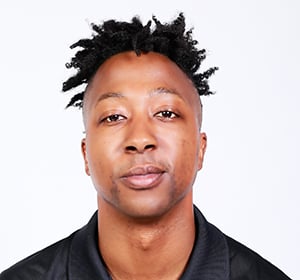During his Ph.D. (cum laude) in the group of Prof. DiCarlo, Adriaan worked on the control for superconducting quantum systems. He has developed new calibration and characterization protocols, as well as a new type of two-qubit gate, and made key contributions to the development of Quantum Infinity, a transmon-based full-stack quantum computer that preceded QuTech’s Quantum Inspire platform. Adriaan has worked closely with experts from all layers of the stack, which was formally recognized through the Zurich Instruments Pioneer Award, and resulted in award-winning papers. Before starting his Ph.D., Adriaan was on the executive board of a non-profit business consultancy.
Archives: Speakers
Prineha
Prineha Narang is an Assistant Professor at the John A. Paulson School of Engineering and Applied Sciences at Harvard University. Prior to joining the faculty, Prineha came to Harvard as a Ziff Fellow and worked as a Research Scholar in Condensed Matter Theory at the MIT Department of Physics. She received an M.S. and Ph.D. in Applied Physics from the California Institute of Technology (Caltech). Prineha is the CTO and co-founder of a Boston-based VC-backed startup, Aliro Quantum, and working towards the commercialization of quantum technologies. Aliro recently launched a series of products critical to the development of future quantum networks and scalable quantum information processing.
Prineha’s work has been recognized by many awards and special designations, including an NSF CAREER Award in 2020, being named a Moore Inventor Fellow by the Gordon and Betty Moore Foundation for pioneering innovations in quantum science and technology, CIFAR Azrieli Global Scholar by the Canadian Institute for Advanced Research, a Top Innovator by MIT Tech Review (MIT TR35), and a Young Scientist by the World Economic Forum in 2018. In 2017, she was named by Forbes Magazine on their “30under30” list for her work in quantum engineering. Prineha is also a part of DOE-led National Quantum Initiative Center and NSF-backed efforts in quantum information science announced in 2020. NarangLab’s research at Harvard focuses on how quantum systems behave, particularly away from equilibrium, and how we can harness these effects. By creating predictive theoretical and computational approaches to study dynamics, decoherence and correlations in the matter, NarangLab’s work would enable technologies that are inherently more powerful than their classical counterparts ranging from scalable quantum information processing to ultra-high efficiency optoelectronic and energy conversion systems. Outside of science, she is an avid triathlete and runner.
Amber
Amber is co-founder and business developer for Orange Quantum Systems. Amber moved from Belgium to the Netherlands in 2011 to study Aerospace Engineering at the TU Delft. He co-founded the automated coating company Qlayers BV in 2017, and the Aerospace Innovation Hub at the TU Delft in 2018. This gives him experience in bootstrapping high-tech companies. Working at TNO since 2019, he analyzed the market of quantum computing and has applied this insight to Orange QS as business developer.
Hans
Dr. Hans van den Vlekkert has started his career at Cordis Europe as a chemical engineer responsible for sensor development. After several jobs in Netherlands and Switzerland, he founded in 2001 LioniX, known nowadays as LioniX International. He started over 20 companies over the past 20 years and his latest venture is QuiX BV, that is aiming at developing a photonic quantum processor for quantum computing.
Menno
Menno Veldhorst is a group leader at QuTech and he leads the QuTech Academy. Veldhorst is an expert in quantum computation with quantum dots and was the first to realize a universal quantum gate set with silicon qubits, which opened a path to quantum technology based on advanced semiconductor manufacturing. His group recently advanced the state-of-the-art of quantum dot qubits by demonstrating a four-qubit germanium quantum processor. For his contributions, Veldhorst received several prices including the Nicholas Kurti Science prize by Oxford Instruments, and Veldhorst is included in MIT Technology Review’s prestigious list of 35 innovators under 35 as a visionary. As QuTech Academy lead, Veldhorst aims to prepare society and industry for the quantum revolution, and the online courses provided by QuTech Academy has already attracted over 50.000 students.
Ronald
Ronald Hanson (1976) focusses on exploring and controlling quantum-entangled states with the long-term goal of exploiting these in future quantum technologies such as quantum computing and quantum internet. His research combines quantum optics, solid-state physics, nuclear magnetic resonance, quantum information theory and nanofabrication. In 2014 his group made headlines by teleporting quantum data between electrons on distant solid-state chips. In 2015 he ended a decades-long scientific quest by performing the first loophole-free Bell test. In 2018 his group achieved the important milestone of generating quantum entanglement faster than it got lost. In the coming years he aims to build on these results to demonstrate the fundamentals of a future quantum internet, with a rudimentary network planned between several cities in the Netherlands.
Ronald is one of the four founding professors of QuTech (2013). He obtained his MSc degree in Applied Physics at the University of Groningen (1999), followed by a year in Japan. He obtained his PhD degree (cum laude) at Delft University of Technology in 2005 with Leo Kouwenhoven. After a postdoc at the University of California in Santa Barbara with David Awschalom, he started his own research group at Delft, where he was appointed Antoni van Leeuwenhoek Professor in 2012.
Ronald has received several awards for his work, among which the Ammodo KNAW Award (2015), the Huibregtsen Award for Excellence in Science and Society (2016), the John Stewart Bell Prize (2017). In 2019 he received the Spinoza Prize, the highest scientific award in the Netherlands. He has been elected member of the Royal Holland Society of Sciences and Humanities (KHMW) since 2018 and of the Dutch Royal Academy of Sciences (KNAW) since 2019.
Denise
Denise Ruffner is a Chief Business Officer and a member of the Company’s executive leadership team. In this role, she manages and coordinates CQC’s business development activities focusing on building CQC’s strong growth agenda, fostering client development and loyalty, and managing corporate strategy and key relationships.
Denise has been recognized for innovation, sales leadership, and strategic planning throughout her 18-year career at IBM. During this tenure, she held a variety of roles which included responsibility for quotas up to $750 million in annual revenue. She joined CQC from the IBM Systems Group Quantum Computing team where her leadership responsibilities included developing and heading the IBM Q Startup Program, in addition to leading the IBM Q Network Ambassador team for the North America, Latin America and Asia regions. Prior to this, Denise was the Worldwide Genomics Sales Leader for IBM Systems Group.
Denise holds a Master’s degree in Neurobiology and Molecular Biology from the University of Pittsburgh.
Tony
Tony Lawrence is the CEO and Founder of Light Rider, a quantum LiFi company, and VOR Technology, a provider of cutting-edge cyber, technology. He has an extensive background in cybersecurity, working at the NSA, U.S. Army and CYBERCOM. By the age of 22 he was working for the Director of NSA and helped create modern day cyber as we know it. Now, Tony is bringing NSA-level security to people’s homes and office with Light Rider’s quantum LiFi products.
Dimitri
Dimitri is a full-stack IT & Business developer with a broad range of technical, management, and commercial skills. Dimitri has built several high available and high-performance internet environments, and managed and built networks for several customers as a project manager and in technical roles, including a 40+ fiber uplink for the LOFAR radio telescope.
After a 10 year period of working on several start-ups in different roles (CTO, COO, Full Stack IT), and after making the last one successful, Dimitri started working at ABN AMRO Technology Lab to explore new technologies that can be applicable for the bank in 5 years and beyond. Dimitri is responsible for the creation and execution of the Quantum Program within the bank, leading 4 Quantum projects, working with experts in the field of Information Security, Cryptography, IT, and Data Science & Mathematics.
Next to his Quantum work, Dimitri is also responsible for an experimental High-Performance Cluster at ABN AMRO, where new experimental hardware and software is deployed and tested.
Koen
Koen Groenland is Quantum Innovation Officer for QuSoft, the Amsterdam-based Research Center for Quantum Software. In this role, his main task is to make QuSoft’s innovative research useful for commercialization and for society. He is responsible for training programs, education, and workshops, as well as setting up new R&D collaborations and events that cater to the quantum ecosystem.
Koen has a background in theoretical physics. He obtained his Ph.D. from the University of Amsterdam on the topic of algorithms for noisy, small-scale quantum computers. He then continued this line of research as a post-doc at the same university. His research interests are on low-level software that optimally uses the native strengths of superconducting circuits, trapped ions, or ultracold atoms. More recently, his focus is drawn to finding novel commercial use-cases for quantum technology, and how these can be integrated in existing business architectures.
